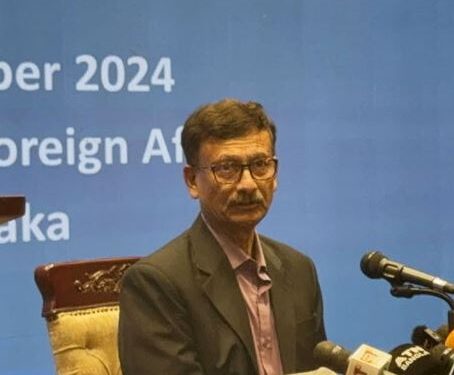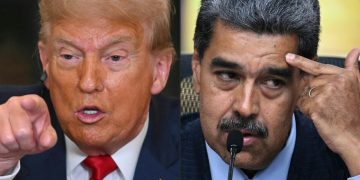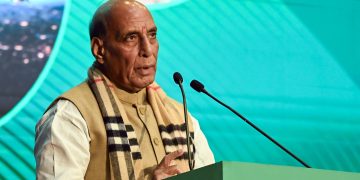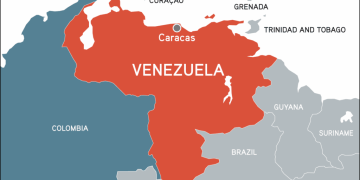Dhaka: Bangladesh interim government of Muhammad Yunus Thursday dismissed the idea of any emerging alliance between Dhaka, Beijing and Islamabad, saying the recent meeting between the three countries was not “political”.
“We are not forming any alliance,” foreign affairs adviser M Touhid Hossain told reporters at the foreign ministry, when asked for comments about the trilateral meeting in China’s Kunming June 19.
“It was a meeting at the official level, not at the political level,” Hossain said, adding that there was “no element of formation of any alliance”.
Asked if the meeting was intended to sideline India, Hossain asserted, “It is certainly not (about) targeting a third-party (which) I can assure you.”
The foreign ministry in an earlier statement said representatives from Bangladesh, China and Pakistan held an “informal trilateral meeting” on the sidelines of two Beijing-sponsored regional events, the China-South Asia Exposition and the China-South Asia Cooperation Forum in Kunming.
China and Pakistan issued separate statements on the meeting while Beijing said the three countries held “extensive discussions on trilateral cooperation” and agreed to move forward based on “good-neighbourliness, mutual trust, equality, openness, inclusiveness and shared development”.
Islamabad, on the other hand, described the gathering as the “inaugural meeting of the Bangladesh-China-Pakistan trilateral mechanism” while both the countries said the meeting decided to form a “joint working group”.
The Bangladesh statement, however, did not acknowledge or mention the decision over the formation of the working group.
Bangladesh’s former acting foreign secretary Ruhul Alam Siddique represented Dhaka in the meeting with Chinese vice foreign minister Sun Weidong and Pakistani additional foreign secretary Imran Ahmed Siddiqui, while Pakistan’s foreign secretary Amna Baloch briefly joined the meeting virtually.
Asked whether Dhaka rejected any characterisation pointed out in the Beijing and Islamabad statements, the adviser said “there is no need to deny anything” but emphasised that it was “not anything big and not something structured”.
Hossain said that the discussions mainly focused on connectivity and related areas, noting, “If there is any further progress, you will know that (but) there is not much scope to speculate”.
He said Dhaka did not have any reservations in joining any such meeting like the Kunming one with other countries, citing a “hypothetical” example involving India.
“If India wants to have such a meeting among Bangladesh, India and Nepal, Dhaka will remain interested in doing the meeting the next day,” the adviser said, but added that the Dhaka-New Delhi relations currently were going through a phase of “readjustment”.
Hossain, however, said there is no lack of goodwill from Dhaka’s side to that end.
“Look, let us acknowledge the truth. The level of deep relationship between India and the previous government (of deposed prime minister Sheikh Hasina) had, and the kind of relationship India had established, the current relationship with us is not like that one,” he said, when asked what he meant by “readjustment”.
Ties between New Delhi and Dhaka deteriorated after the ouster of Sheikh Hasina in August last year in a massive student-led protest.
She fled to India following the toppling of her Awami League government, and Yunus took over as the head of the interim government.
In April, Prime Minister Narendra Modi met with Yunus for the first time after Hasina’s ouster and flagged concerns over the attacks on minorities, including Hindus and conveyed that any rhetoric that vitiated the environment was best avoided.
PTI






































